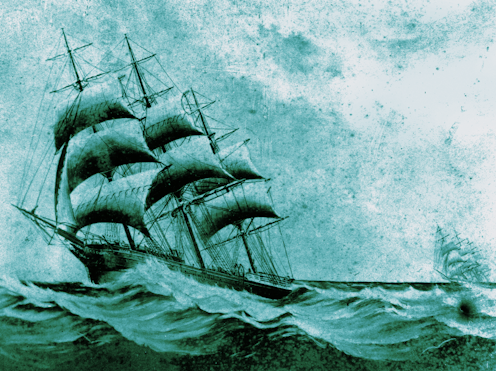Gail Jones’ One Another explores the life of Joseph Conrad and the transformative potential of reading
- Written by Sue Kossew, Emeritus Professor of Literary Studies at School of Languages, Literatures, Cultures and Linguistics, Faculty of Arts, Monash University

Joseph Conrad (1857-1924), the famous Polish-born author of Heart of Darkness[1], Lord Jim[2] and The Secret Agent[3], among many other novels and short stories, is not a writer usually associated with Australia. Yet lying just off the banks of the River Derwent near Hobart there remains a haunting reminder of his presence – the partially submerged wreck of the Otago, a sailing ship he once captained when he was a roaming seafarer serving in the British merchant navy.
As a mariner, Conrad visited Australia numerous times (though, ironically, not Tasmania). The Otago, as with other ships on which he served, became the subject of many of the works he wrote in England when his sailing career ended.
A fictionalised version of Conrad, the man and the writer, forms half of Gail Jones’s new novel One Another[4]. Significantly, Jones wrote the novel in Hobart, while taking up a writing fellowship at the University of Tasmania.
The Otago wreck is a pivotal image in the book, providing a symbolic meeting-space between the novel’s two main characters and marking a place where the past intrudes, in a bodily way, into the present.
Read more: How Conrad’s imperial horror story Heart of Darkness resonates with our globalised times[5]

















